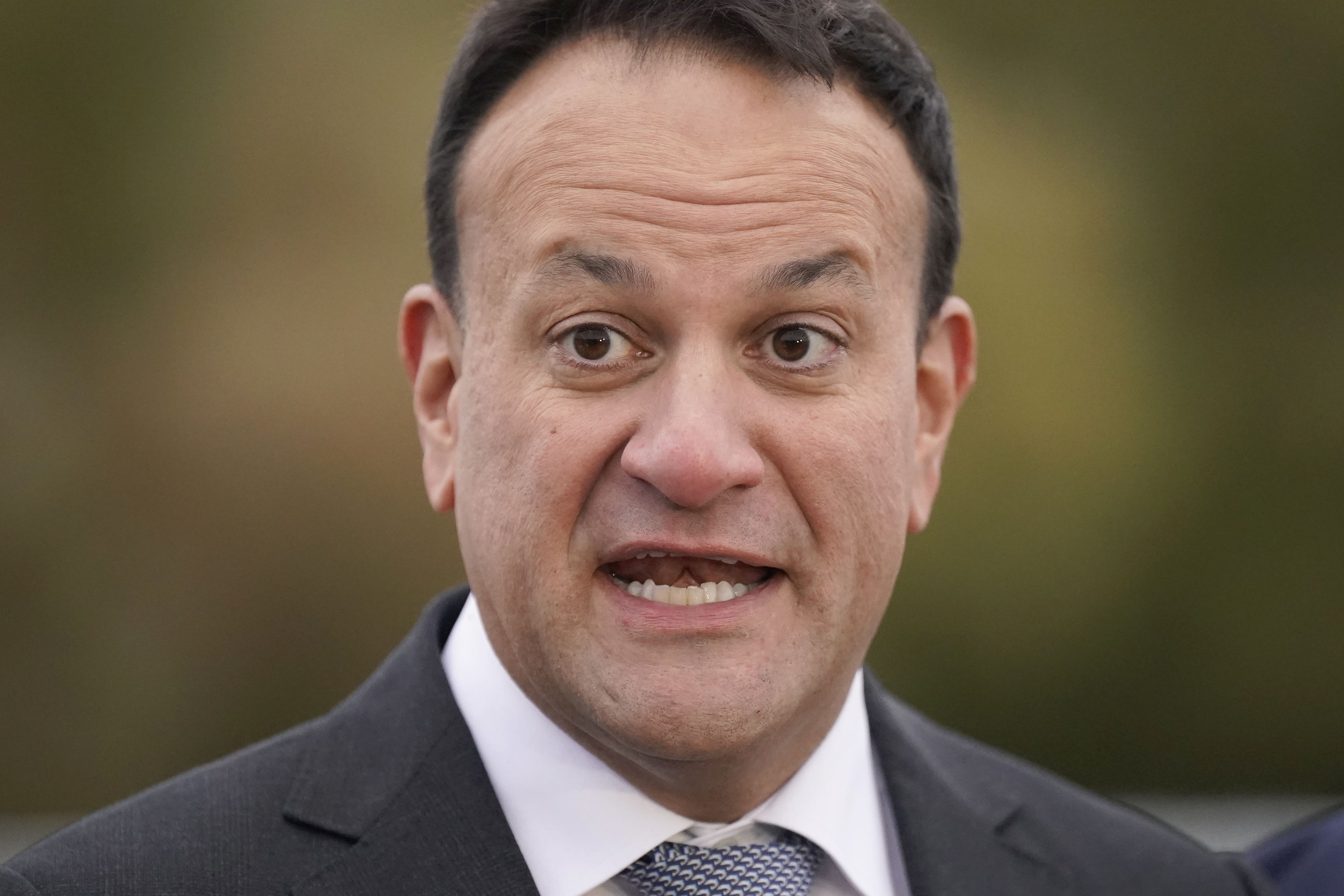Varadkar: Israel’s actions ‘more approaching revenge than self-defence’
The Taoiseach said that he did not believe that Israel would guarantee its security through this approach.

Your support helps us to tell the story
From reproductive rights to climate change to Big Tech, The Independent is on the ground when the story is developing. Whether it's investigating the financials of Elon Musk's pro-Trump PAC or producing our latest documentary, 'The A Word', which shines a light on the American women fighting for reproductive rights, we know how important it is to parse out the facts from the messaging.
At such a critical moment in US history, we need reporters on the ground. Your donation allows us to keep sending journalists to speak to both sides of the story.
The Independent is trusted by Americans across the entire political spectrum. And unlike many other quality news outlets, we choose not to lock Americans out of our reporting and analysis with paywalls. We believe quality journalism should be available to everyone, paid for by those who can afford it.
Your support makes all the difference.Irish premier Leo Varadkar has said that some of Israel’s actions in Gaza were not just self-defence and resembled “something more approaching revenge”.
The Taoiseach reiterated his belief that Israel has a right to defend itself, and to “go after Hamas”, but said what he is “seeing unfolding at the moment isn’t just self-defence”.
He said Israel will not consider Ireland a close friend or ally as it has a different stance on Palestine than most western countries.
“I strongly believe that, like any state, Israel has the right to defend itself, has the right to go after Hamas so that they cannot do this again,” he told Irish media in South Korea.
“But what I’m seeing unfolding at the moment isn’t just self-defence, it looks, resembles, something more approaching revenge.
“That’s not where we should be and I don’t think that’s how Israel will guarantee its future freedom and its future security.”
Mr Varadkar made the comments at the conclusion of a diplomatic mission that he and three ministers were fronting, as part of an Irish “big bang” strategy to improve relations with less-visited countries.
Speaking in Galway on Friday, Justice Minister Helen McEntee said that Israel “absolutely has a right to defend itself”, but it has to do so “with humanitarian focus”.
“We’ve made that very clear, the Taoiseach has made that very clear, and obviously, we would like to see other colleagues making that statement and making that very clear as well.”
More than 9,000 Palestinians have been killed in the Gaza Strip since October 7, when Hamas militants launched rockets, killed 1,400 Israeli citizens and took around 200 hostages to Gaza.
Israel has carried out a military response in the wake of the atrocities; on Friday its troops were engaged in an encirclement of Gaza City in an effort to attack Hamas’s operations in the enclave it rules.
Aid agencies are now battling a humanitarian crisis in Gaza with limited resources.
US secretary of state Antony Blinken arrived in Israel on Friday to press for more humanitarian aid to be allowed into Gaza.
Meanwhile, some dual nationals and injured citizens have been able to leave the war-ravaged region through Egypt’s Rafah crossing this week; around 35 Irish passport-holders remain in the territory.
On Thursday, Ireland’s president said that “collective punishment” cannot be accepted and there must be a push for verified facts in relation to the Israel-Hamas conflict.
Michael D Higgins said that those who want to uphold international law “must press for an independent verification of the facts”, and that lives lost should “not reduced to competing press releases”.
Mr Higgins said that if international law is to be upheld, the hostages should be released and an immediate humanitarian ceasefire should come into effect.